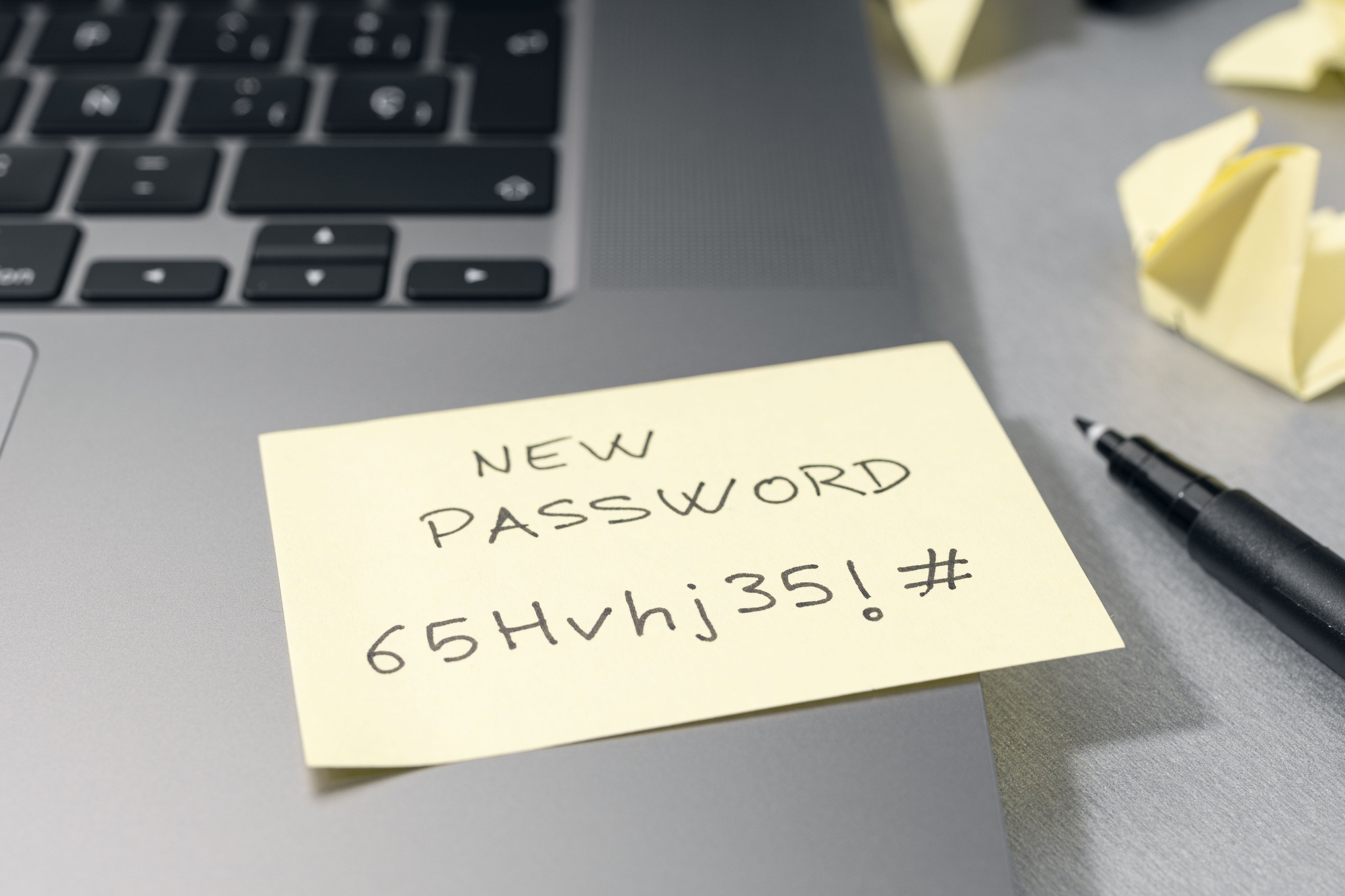Key Takeaways

- Importance of Strong Passwords: Implementing a robust password policy is crucial for protecting sensitive information and defending against cyber threats, especially for small businesses.
- Complex Password Requirements: Effective password policies mandate the creation of complex, unique passwords that avoid easily guessable information, enhancing overall security.
- Regular Password Updates: Establish guidelines for changing passwords frequently (e.g., every 90 days) to minimize the risk of unauthorized access and bolster security practices.
- Multi-Factor Authentication (MFA): Incorporating MFA as a part of the password policy significantly enhances security by requiring additional verification methods for user access.
- Employee Training and Awareness: Continuous training on password security is essential; educate employees on the significance of strong passwords and current cyber threats to foster a security-first culture.
- Compliance with Regulations: A well-defined password policy not only protects data but also helps small businesses comply with regulations like GDPR and HIPAA, minimizing legal risks and maintaining customer trust.
In today’s digital world, a strong password policy is your first line of defense against cyber threats. With data breaches becoming increasingly common, the need for robust password practices has never been more critical. Implementing a well-defined password policy can significantly reduce your vulnerability and protect sensitive information.
You might think that a simple password is enough, but that’s far from the truth. Effective password policies not only dictate password complexity but also outline best practices for password management. By understanding the importance of a solid password strategy, you can safeguard your accounts and maintain your privacy in an ever-evolving online landscape.
Overview of Password Policy

A strong password policy serves as a critical defense for your small business against cyber threats. With data breaches occurring frequently, implementing robust password practices becomes essential in safeguarding sensitive information. An effective password policy not only emphasizes password complexity but also integrates best practices for password management.
In a tech-driven environment, ensure your employees understand the importance of unique passwords for different accounts. Instruct them to avoid easily guessable information, like birthdays or common names, which cybercriminals may exploit. Encourage the use of password managers to store and generate complex passwords, adding an additional layer of security.
Another essential aspect includes regular password updates. Mandate formal guidelines, such as changing passwords every 90 days, to minimize the risk of unauthorized access. Foster a culture that prioritizes password security by providing ongoing training about the latest threats and how to recognize phishing attempts.
Adopting multi-factor authentication (MFA) can enhance your password policy further. MFA requires verification through multiple methods, making it significantly harder for attackers to gain access. Implementing these strategies will strengthen your business’s digital security and protect your valuable data from emerging cyber threats.
Importance of Password Policy

A password policy is fundamental for small businesses to safeguard sensitive data. A well-structured policy reinforces your defense against unauthorized access and cyber threats.
Security Risks of Weak Passwords
Weak passwords increase your exposure to various security risks. Cybercriminals exploit predictable passwords to gain unauthorized access to systems and data. Approximately 81% of data breaches stem from weak or stolen passwords. Small businesses often underestimate the importance of strong passwords, making them prime targets for attacks. Implementing a robust password policy curtails these risks and protects against data breaches and identity theft.
Compliance and Regulations
Compliance with regulations is essential for small businesses. Many industries mandate specific guidelines around password management to protect consumer information. For instance, the General Data Protection Regulation (GDPR) and the Health Insurance Portability and Accountability Act (HIPAA) require that organizations maintain strong security practices, including implementing effective password policies. Failure to comply with these regulations can result in severe penalties and loss of customer trust. Adopting a strict password policy not only helps maintain compliance but also boosts your overall security posture.
Key Components of an Effective Password Policy
An effective password policy is essential for protecting your small business against cyber threats. Implementing strong password practices helps safeguard sensitive information and reinforces your overall security posture.
Password Creation Guidelines
Create passwords that are at least 8 characters long, as recommended by NIST. Use passphrases for easier memorization while maintaining security. Avoid common phrases, patterns, or easily guessable information like birthdays or names. Each password should be unique and unguessable. Utilize tools like password strength meters and strong password generators, which can aid in crafting secure credentials and checking them against lists of commonly compromised passwords.
Password Expiration and Change Frequency
Implement a regular schedule for password changes. Change passwords every 90 days to minimize the risk of unauthorized access. Establish guidelines around updating passwords after significant security incidents. Encouraging frequent updates promotes a culture of vigilance and reinforces the importance of password security, especially for small businesses invested in protecting their tech assets.
Multi-Factor Authentication
Adopt multi-factor authentication (MFA) to add an additional layer of security. MFA requires users to verify their identity through a second method, such as a text message or authentication app. This practice significantly reduces the likelihood of unauthorized access, protecting your small business against breaches stemming from weak passwords. By implementing MFA, you enhance your overall security strategy and reinforce your commitment to safeguarding your data from evolving cyber threats.
Best Practices for Implementing a Password Policy

Implementing a strong password policy is vital for protecting your small business from cyber threats. Following best practices helps secure sensitive information and ensures compliance with regulations.
Employee Training and Awareness
Train employees on the importance of password security. Educate them about creating complex passwords that are at least 12 characters long and include a mix of uppercase and lowercase letters, numbers, and special characters. Encourage the use of passphrases, which are easier to remember yet still secure. Regular training sessions should increase awareness about the latest cyber threats and phishing tactics. This approach not only safeguards your technology but also fosters a culture of security within your organization.
Regular Audits and Updates
Conduct regular audits of your password policy to identify potential weaknesses. Review password management practices every six months to ensure compliance with best practices. Update your password policy as new threats emerge or when technology changes. Mandate that employees change passwords every 90 days and after significant security incidents. Regular updates minimize unauthorized access and reinforce your commitment to keeping sensitive data secure.
Conclusion

Implementing a strong password policy is essential for safeguarding your sensitive information in an increasingly digital world. By following best practices and fostering a culture of security within your organization, you’ll significantly reduce the risk of data breaches.
Encouraging employees to create complex passwords and regularly update them can enhance your overall security posture. Don’t underestimate the importance of multi-factor authentication as an additional layer of protection.
Stay proactive in educating your team about the latest cyber threats and regularly auditing your password policy. By doing so, you’ll not only comply with regulations but also build trust with your customers and protect your valuable data from emerging risks.
Frequently Asked Questions

What is a strong password policy?
A strong password policy is a set of guidelines that emphasizes creating and managing secure passwords. It aims to protect sensitive information from unauthorized access by requiring unique, complex passwords, regular updates, and comprehensive training on password management.
Why are strong passwords important?
Strong passwords are crucial as they significantly reduce the risk of data breaches and cyberattacks. Approximately 81% of data breaches involve weak or stolen passwords, making it essential to implement robust password practices to safeguard sensitive data.
How often should I change my passwords?
It is recommended to change your passwords every 90 days. Regular updates help minimize the chances of unauthorized access and ensure that compromised credentials do not remain active for long periods.
What are the best practices for creating passwords?
Passwords should be at least 12 characters long, combining uppercase and lowercase letters, numbers, and special characters. Avoid common phrases and patterns; instead, consider using passphrases to enhance memorability while maintaining complexity.
What role do password managers play?
Password managers help securely store and generate complex passwords. They simplify the management of multiple passwords, making it easier to use unique passwords for different accounts, thus enhancing overall security.
How can organizations improve password security?
Organizations can improve password security by implementing strict policies, conducting regular training sessions on password management, and fostering a culture of cybersecurity awareness. Regular audits of password practices also help identify weaknesses and ensure compliance.
Why should small businesses focus on password security?
Small businesses often underestimate password security, making them prime targets for cyberattacks. Strong password policies can greatly reduce their vulnerability, protect sensitive data, and ensure compliance with regulations like GDPR and HIPAA.
What is multi-factor authentication (MFA)?
Multi-factor authentication (MFA) adds an extra layer of security by requiring users to provide multiple forms of verification before accessing an account. This significantly decreases the chances of unauthorized access, even if a password is compromised.
Image Via Envato



